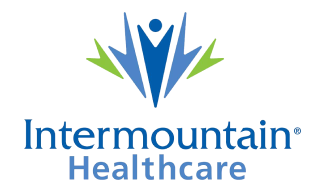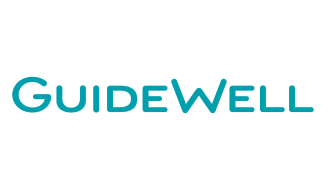Carmel, Indiana, United States
Indiana Center for Recovery Carmel
Verified
Verified
This provider’s information has been quality-checked by Recovery.com’s Research Team for accuracy and completeness, including center verification through appropriate third-party organizations.
Joint Commission Accredited
The Joint Commission accreditation is a voluntary, objective process that evaluates and accredits healthcare organizations (like treatment centers) based on performance standards designed to improve quality and safety for patients. To be accredited means the treatment center has been found to meet the Commission's standards for quality and safety in patient care.
Provider's Policy
At Indiana Center for Recovery, we have experienced staff with the expertise of insurance coverage requirements and benefits for addiction treatment. Our team does all of the work with the insurance companies so that our patients can focus on the most important thing, getting better from addiction.
Estimated Cash Pay Rate
The cost listed here (Contact Center for Pricing) is an estimate of the cash pay price. Center pricing can vary based on program and length of stay. Contact the center for more information. Recovery.com strives for price transparency so you can make an informed decision.
About Indiana Center for Recovery Carmel
Named one of America’s Best Treatment Centers for 4 consecutive years (2021–2024), Indiana Center for Recovery in Carmel delivers compassionate, innovative outpatient care. Their day treatment bridges the gap between residential and traditional outpatient treatment by offering structured, evidence-based therapies while allowing clients to return home each evening. Upon arrival, clients are warmly welcomed with a facility tour, check-in by a behavioral health technician, and introductions to their care team. Treatment begins with a personalized plan that tackles the root causes of addiction through individual counseling, group therapy, and skill-building workshops.
Flexible Treatment with Holistic Support
The center offers tailored care to meet each client’s unique needs. Their dual-diagnosis program addresses both substance use and mental health conditions, while stand-alone services focus on either addiction or mental health. Comprehensive options include evidence-based therapies, Medication-Assisted Treatment (MAT), and medication management. Day treatment typically lasts 2-3 weeks. This holistic approach treats substance use and co-occurring challenges such as anxiety, depression, and PTSD, ensuring a dual-diagnosis focus that promotes both mental and physical recovery.
Recovery That Includes Your Family
Family involvement is a cornerstone of the program, with therapy sessions and resources designed to empower loved ones to actively support the recovery process. These services strengthen communication and relationships, fostering a supportive environment for lasting success.
Veteran-Centric Care
Veterans receive specialized care tailored to their unique needs, including GeneSight genetic testing to optimize medication effectiveness and minimize side effects. Combined with personalized counseling, therapy, and skill-building workshops, this evidence-based approach ensures lasting recovery and improved mental health.
Read More

Insurance Accepted
Provider's Policy:At Indiana Center for Recovery, we have experienced staff with the expertise of insurance coverage requirements and benefits for addiction treatment. Our team does all of the work with the insurance companies so that our patients can focus on the most important thing, getting better from addiction.
Flexible Yet Intensive Care
The Carmel day treatment bridges inpatient care and outpatient services, offering structured, flexible treatment. Clients receive intensive care during the day while returning home in the evenings, supporting recovery without disrupting work, school, or family commitments.
Rest Easy with Trusted, Experienced Staff
With over a century of combined experience, the team at Indiana Center for Recovery is made up of seasoned professionals dedicated to delivering exceptional care. Fully accredited by the Joint Commission, the facility upholds the highest standards in healthcare, ensuring clients receive top-quality treatment in a trusted and supportive environment.
Personalized Care at the Root of Healing
Indiana Center for Recovery offers personalized outpatient care designed to meet each client's unique needs. Their programs focus on relapse prevention, evidence-based therapies, and mental health support, including mood stabilization and medication management. By tailoring treatment plans to individual goals, they provide compassionate care that helps clients build lasting recovery.
Heal Together with Family-Centered Support
Carmel integrates family therapy and resources to educate and involve loved ones in the recovery process. Combined with accommodations for business, family, and school communications, the program prioritizes strengthening relationships and creating a supportive recovery environment both inside and outside the facility.

Center Overview
Estimated Cash Pay Rate
Men and Women
Men and women attend treatment for addiction in a co-ed setting, going to therapy groups together to share experiences, struggles, and successes.
Veterans
Patients who completed active military duty receive specialized treatment focused on trauma, grief, loss, and finding a new work-life balance.

Treatment Focus
This center treats primary substance use disorders and co-occurring mental health conditions. Your treatment plan addresses each condition at once with personalized, compassionate care for comprehensive healing.

Care Options







Treatment
Specializations
Alcohol
Using alcohol as a coping mechanism, or drinking excessively throughout the week, signals an alcohol use disorder.
Co-Occurring Disorders
A person with multiple mental health diagnoses, such as addiction and depression, has co-occurring disorders also called dual diagnosis.
Cocaine
Cocaine is a stimulant with euphoric effects. Agitation, muscle ticks, psychosis, and heart issues are common symptoms of cocaine abuse.
Drug Addiction
Drug addiction is the excessive and repetitive use of substances, despite harmful consequences to a person's life, health, and relationships.
Medication-Assisted Treatment
Combined with behavioral therapy, prescribed medications can enhance treatment by relieving withdrawal symptoms and focus patients on their recovery.
Methamphetamine
Methamphetamine, or meth, increases energy, agitation, and paranoia. Long-term use can result in severe physical and mental health issues.
Opioids
Opioids produce pain-relief and euphoria, which can lead to addiction. This class of drugs includes prescribed medication and the illegal drug heroin.
Veterans
Patients who completed active military duty receive specialized treatment focused on trauma, grief, loss, and finding a new work-life balance.
Approaches
Evidence-Based
A combination of scientifically rooted therapies and treatments make up evidence-based care, defined by their measured and proven results.
Individual Treatment
Individual care meets the needs of each patient, using personalized treatment to provide them the most relevant care and greatest chance of success.
Twelve Step
Incorporating spirituality, community, and responsibility, 12-Step philosophies prioritize the guidance of a Higher Power and a continuation of 12-Step practices.
Therapies
1-on-1 Counseling
Patient and therapist meet 1-on-1 to work through difficult emotions and behavioral challenges in a personal, private setting.
Meditation & Mindfulness
A practiced state of mind that brings patients to the present. It allows them to become fully aware of themselves, their feelings, and the present moment.
Art Therapy
Visual art invites patients to examine the emotions within their work, focusing on the process of creativity and its gentle therapeutic power.
Family Therapy
Family therapy addresses group dynamics within a family system, with a focus on improving communication and interrupting unhealthy relationship patterns.
Medication-Assisted Treatment
Combined with behavioral therapy, prescribed medications can enhance treatment by relieving withdrawal symptoms and focus patients on their recovery.
Motivational Interviewing
Based on the idea that motivation to change comes from within, providers use a conversational framework to discover personalized methods for change.
Music Therapy
Singing, performing, and even listening to music can be therapeutic. Music therapy sessions are facilitated by certified counselors.
Twelve Step Facilitation
12-Step groups offer a framework for addiction recovery. Members commit to a higher power, recognize their issues, and support each other in the healing process.
Substances We Treat
Alcohol
Using alcohol as a coping mechanism, or drinking excessively throughout the week, signals an alcohol use disorder.
Benzodiazepines
Benzodiazepines are prescribed to treat anxiety and sleep issues. They are highly habit forming, and their abuse can cause mood changes and poor judgement.
Co-Occurring Disorders
A person with multiple mental health diagnoses, such as addiction and depression, has co-occurring disorders also called dual diagnosis.
Cocaine
Cocaine is a stimulant with euphoric effects. Agitation, muscle ticks, psychosis, and heart issues are common symptoms of cocaine abuse.
Drug Addiction
Drug addiction is the excessive and repetitive use of substances, despite harmful consequences to a person's life, health, and relationships.
Ecstasy
Ecstasy is a stimulant that causes intense euphoria and heightened awareness. Abuse of this drug can trigger depression, insomnia, and memory problems.
Heroin
Heroin is a highly addictive and illegal opioid. It can cause insomnia, collapsed veins, heart issues, and additional mental health issues.
Psychedelics
Hallucinogenic drugs—like LSD—cause euphoria and increased sensory experiences. When abused, they can lead to depression and psychosis.
Methamphetamine
Methamphetamine, or meth, increases energy, agitation, and paranoia. Long-term use can result in severe physical and mental health issues.
Aftercare
Experience
Personal Amenities
Amenities
Activities
Professional Staff

Dr. Michael Kane
Medical Director

Kathy Delaney
Group Facilitator, Lead

Roxanna Bolen
Lead MHT

Erica Loy
MHT Supervisor
View More Team Members
We love hearing about your treatment experience
Help individuals and families seeking treatment by sharing your first-hand experience with this treatment provider. Review Guidelines.







































